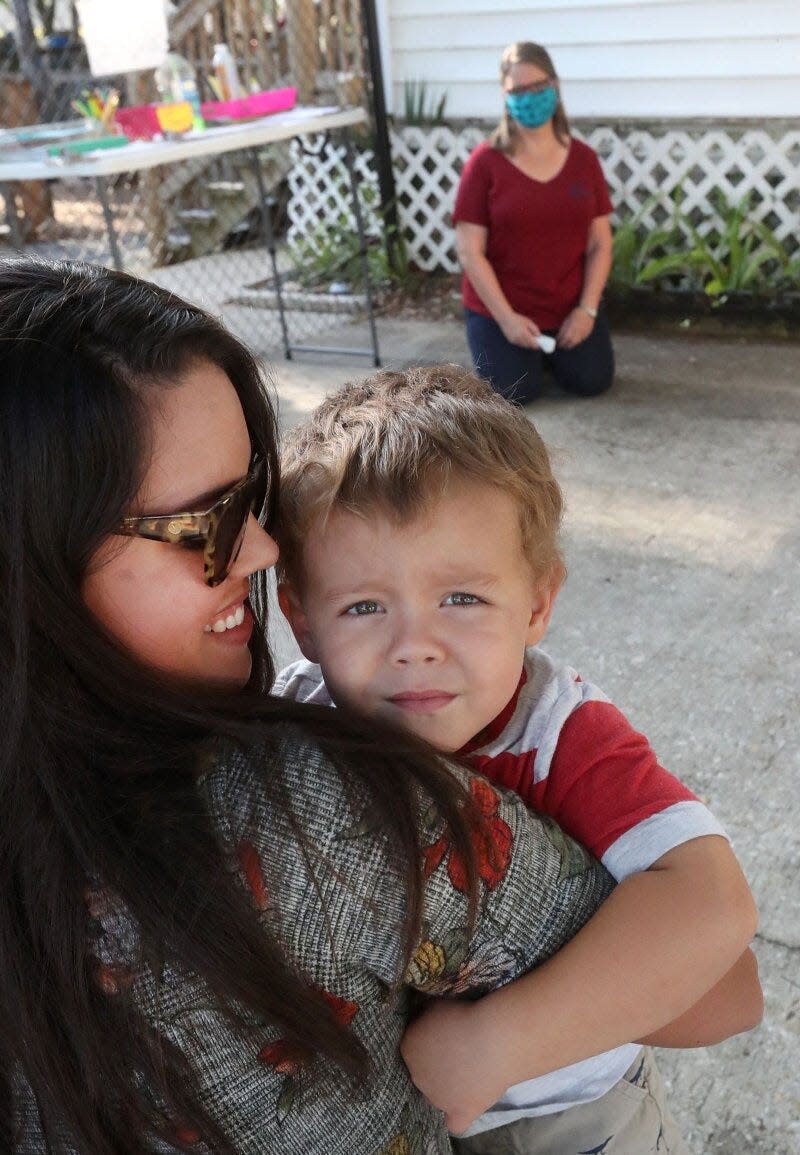Amid coronavirus, new parents face scary choices. Expanded family leave could ease fears.
It is a terrifying time to be pregnant.
As the coronavirus rages across the country, the prospect of exposure to the virus in the hospital is placing an added strain on expecting families.
The precarious journey does not end for most parents with a healthy delivery; they return home to find constrained, unsettling options for child care as well. The pandemic has restricted visitors, including family members, who could provide critical relief to exhausted new parents, monitor for post-partum physical and mental health, and furnish food and comfort. Parents also struggle with the quandary of when they will feel comfortable sending their vulnerable new baby to child care so they can return to work.
The need for leave-taking during this pandemic has put further pressure on a system where 81 percent of workers don’t have access to a paid family leave benefit. Paid parental leave is proven to reduce infant mortality rates, improve child development outcomes and reduce reliance on federal welfare benefits.
It is also rare. Only 6 percent of workers with earnings in the lowest 10 percent of weekly wages have access to paid family leave.
Share your coronavirus story: Contact USA TODAY Opinion's hotline. We may publish your comments.
The emergency family leave provisions set out by Congress in the Families First Coronavirus Response Act go a long way to protect parents facing school closures or discontinued child care options, authorizing roughly 10 weeks of emergency family leave at a two thirds wage replacement rate. But unfortunately, carve-outs and exemptions exclude as many as 75% of workers.
Expand leave at larger businesses
It is imperative that Congress amends the FFRCA family leave provisions to expand leave to parents struggling to meet the demands of raising a family during the pandemic. Specifically, Congress should codify maternity and paternity leave into the emergency law and close the loophole for businesses with more than 500 employees.
Historically, large companies have offered paid parental and family leave benefits while small businesses struggle with the cost. The FFCRA emergency paid leave provisions cover the cost to businesses that employ up to 500 workers. However, by excluding larger companies, the bill leaves many of our most vulnerable workers without coverage. While many large companies have generous benefits packages, such benefits typically apply only to executives and often exclude hourly employees from coverage.
On the other end of the spectrum, small businesses with fewer than 50 employees can seek a waiver from the Department of Labor if family leave coverage would place too great a financial burden on their operations. According to new research by the Bipartisan Policy Center, 41 percent of small business owners found it challenging to accommodate workers requiring leave to care for their families. And while the business-size exemption is critical to the survival of many small businesses, many with less than two weeks of cash on hand and few employees to manage work flow, it exposes millions more workers to potential insecurity following the birth of a child.

New parents face dilemma
Without paid leave, parents expected to return to work after giving birth will face an impossible choice between their livelihoods and the safe care of their new baby. A recent poll by the Bipartisan Policy Center and Morning Consult found that about 60 percent of child care centers are closed indefinitely. On top of that, even when care options are available, there is a pervasive fear among new parents of infection risk in these institutional environments.
Failure to support our new families will affect our country for generations and set the stage for expansive economic and social setbacks. Primary among these concerns would be the unintended decrease in workforce retention, as parents who lack options are forced to leave jobs to care for new babies.
Exacerbating this situation, roughly 40 percent of babies in this country are born into single-parent homes, leaving many without adequate family support. In dual income families, anecdotal evidence exposes a trend in which many women are expected to shoulder a disproportionate share of the child care responsibilities during the COVID-19 crisis, putting their work responsibilities on back burners or leaving work altogether. This not only unfairly penalizes working mothers, but increases the likelihood that families will have to forfeit income to support child care needs.
We can’t afford to let our families down.
Maggie Cordish was the policy adviser to White House Adviser Ivanka Trump on paid leave and family policy. She is a fellow at the Bipartisan Policy Center in Washington, D.C.
You can read diverse opinions from our Board of Contributors and other writers on the Opinion front page, on Twitter @usatodayopinion and in our daily Opinion newsletter. To respond to a column, submit a comment to letters@usatoday.com.
This article originally appeared on USA TODAY: As coronavirus stresses families, paid parental leave can ease fears

